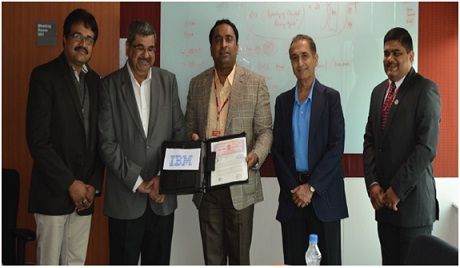DEPARTMENT OF COMPUTER SCIENCE AND ENGINEERING

The confluence of academia and industries is inevitable in the growing field of Computer Science. HITS has come out with a novel solution of running B.Tech courses aligned with industrial standards along with the industrial leader IBM.
Cyber Security specialization will provide a deeply engaging learning experience with interesting real-world applications. Cyber Security and Forensics gives a better understanding of protecting your data from cyber-attacks with proper risk management and mitigation. The B.Tech Program with specialization on Cyber Security and Forensics will have professional core courses from Computer Science and Engineering and electives courses in Cyber Security and Digital Forensics, which are exclusively designed by IBM. Upon successful completion of the course, every student will receive a digital badge from IBM along with the degree from HITS, which is an added credential and gives them an edge over other students.
